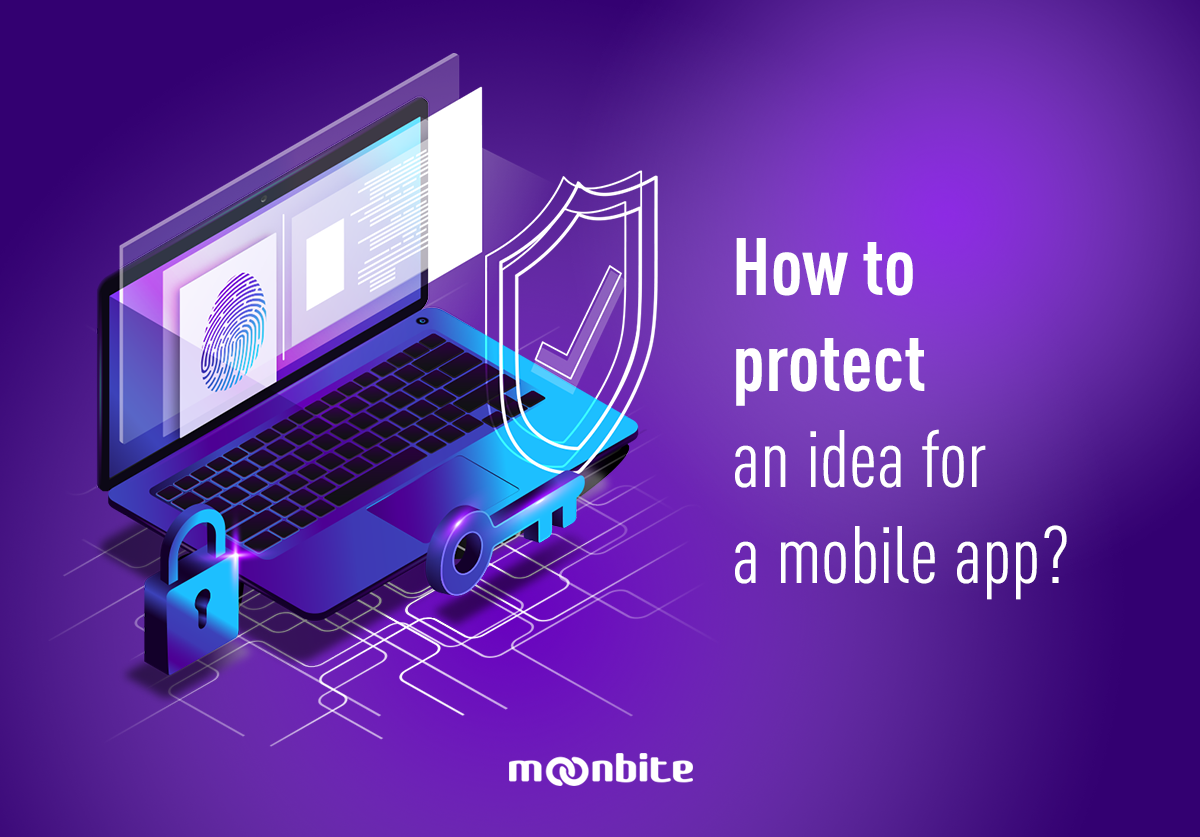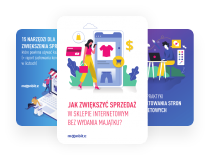How to protect an idea for a mobile app?
Do you have an innovative idea for a mobile application that you have worked on for a long time and intend to implement it? You definitely need the help of other people, colleagues, subcontractors or investors. And here are the most common doubts about how you can protect yourself against dishonest colleagues who could use your thoughts and realize it on their own. It is hardly surprising. In today's world, a good app can become a really profitable business.

In today's article, attorney-at-law Sandra Mościcka-Wójciak, co-author of the blog www.legalniewbiznesie.pl, will tell you how to protect your idea for a mobile application.
An idea for a mobile application and copyright
By art. 74 [1] of the Act of February 4, 1994, on Copyright and Related Rights, computer programs are protected as literary works. Mobile applications are subject to the same protection as computer programs.
A mobile app is a subject to copyright from the moment it is externalized, e.g. in the form of source code. However, the subject of copyright protection is only the way the work is expressed, i.e. the source code, not the idea for a mobile application. This means that anyone can create an app with the functionality you invented, but must use different source code.
Protection of an idea for a mobile application and registration of a trademark
If you would like to protect the name of your application or its logo, think about registering a trademark. The trademark protection law lasts 10 years from the date of filing the trademark with the Patent Office (with the option of renewing it for further 10-year periods) and gives the entrepreneur the exclusive right to use the registered designation in a given territory throughout the entire protection period. Registering a trademark will protect you against its unlawful use, and in the event of such a breach, it will facilitate your assertion.
A trademark will also increase the visibility of your application and may be a part of its promotion.
Protection of an idea for a mobile application in a non-disclosure agreement
The basic way by which you can secure your idea for a mobile application is to sign a non-disclosure agreement (NDA) with any contractors or colleagues. You should do this before you start any conversations during which you begin to convey your idea. Thanks to the signed NDA, you will have the basis to enforce your rights in the event of any attempt to use your idea. It is very important that this agreement precisely defines the scope of confidential information that you intend to protect. This will avoid future disputes as to whether or not the other party may have used the information. The more detailed this confidential information is, the better. Another issue is to define the other party's obligations. The basic obligation is to keep confidential all information specified in the contract as confidential information. The NDA may also contain other obligations, e.g. the obligation to destroy documents provided during interviews in the event of cooperation, transfer all copies of documentation provided to the other party, or delete any files containing confidential data. All these obligations depend on the specific circumstances in which such conversations are to be conducted. The easiest way to enforce the rights arising from the contract is to provide for a contractual penalty in the event of a breach by the other party of its obligations.
An idea for a mobile application as a trade secret of the company
If you are an entrepreneur, you can protect an idea for a mobile app based on the provisions of the Act of 16.04.1993. on combating unfair competition. According to Article 11 (1) of this Act, an act of unfair competition is a disclosure, use or acquisition of third party information that is a business secret.
However, as stated in para. 2. of the same article, a trade secret is understood as technical, technological, organizational enterprise information or other information of economic value, which as a whole or in a specific combination and collection of their elements are not commonly known to persons usually dealing with this type of information or are not easily available to such persons, provided that the person authorized to use or dispose of the information has taken, with due diligence, to keep it confidential.
For such information to be protected by the Act on Combating Unfair Competition, you must remember two basic issues. Firstly, they cannot be disclosed, e.g. on your company's website, and secondly, you must take steps to keep them confidential.
Protection of personal goods
And what if you do not secure your idea for a mobile application in any way?
Then you still have the protection provided for in the Civil Code. By art. 23 of the Civil Code, the personal rights of persons protected by civil law include, inter alia, inventive creativity.
So if you do not secure your idea for a mobile app in any way, e.g. by signing a non-disclosure agreement and it will be used by unauthorized persons, you are not in a lost position. You still have a claim for infringement of personal rights under Art. 24 of the Civil Code.
To sum up, it is worth ensuring that your interests are protected already at the stage of choosing possible contractors and associates. Remember that the best way to secure your idea for a mobile application is to sign an NDA. Of course, both the Civil Code provides legal protection for inventive creativity, and the Act on Combating Unfair Competition protects the secrets of the entrepreneur, but for the possibility of enforcing your rights, a non-disclosure agreement is the most effective tool for this.


